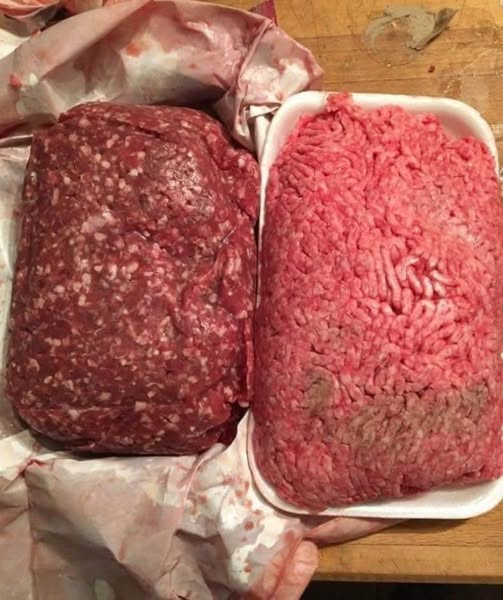When it comes to buying beef, the decision goes far beyond selecting a cut for tonight’s dinner. The choice between store-bought and farm-raised beef carries significant implications, not only for taste and quality but also for your health, ethical concerns, and the environment. By understanding the differences, you can make more informed choices that align with your personal values and priorities.

Store-bought beef is a familiar sight in supermarkets, often distinguished by its bright, pinkish color. While this appearance might suggest freshness, it is important to know that this color is not natural. It is achieved through the use of preservatives and additives like propyl gallate, which are designed to extend the meat’s shelf life and enhance its visual appeal. While these chemicals do serve a purpose in keeping the meat market-ready for longer periods, they also introduce unnatural substances into the food you consume. For many, this is a cause for concern, as the long-term effects of consuming these additives are still debated among health experts.
Most store-bought beef comes from industrial farming operations that prioritize efficiency and profit. In these settings, cattle are typically raised in confined feedlots and fed a diet rich in grains to maximize weight gain. To further accelerate growth and prevent illness in overcrowded conditions, many industrial farms rely on antibiotics and growth hormones. While these practices make beef production more cost-effective, they come with trade-offs that directly impact the quality of the meat and its potential effects on your health. For example, the routine use of antibiotics in livestock can contribute to the rise of antibiotic-resistant bacteria, which is a growing public health concern.
In contrast, farm-raised beef offers a more natural and ethical approach to meat production. Typically sourced from smaller, family-run farms, this type of beef emphasizes humane treatment and sustainable farming practices. Farm-raised cattle are often allowed to graze freely on grass, their natural diet, rather than being confined to feedlots. This method of farming results in meat that is not only more flavorful but also more nutrient-dense. Grass-fed beef, for instance, is higher in omega-3 fatty acids, which are beneficial for heart and brain health, and lower in unhealthy saturated fats.
Another key advantage of farm-raised beef is its lack of synthetic additives, growth hormones, and routine antibiotics. For health-conscious consumers, this makes it a cleaner, more natural option. When you buy farm-raised beef, you are also supporting a system of farming that prioritizes the well-being of animals and the integrity of the food we eat. Knowing that the cattle were raised ethically and in a low-stress environment can add a layer of satisfaction to your dining experience.
The environmental impact of store-bought and farm-raised beef also differs significantly. Industrial farming, which supplies the majority of store-bought beef, is a major contributor to greenhouse gas emissions, deforestation, and water pollution. The grain-heavy diets of feedlot cattle require large-scale agricultural production, often leading to unsustainable farming practices. In contrast, smaller farms that produce farm-raised beef tend to have a lower environmental footprint. By allowing cattle to graze on natural pastures, these farms contribute to healthier soil and ecosystems, making their operations more sustainable in the long run.
The ethical considerations of farm-raised beef are also worth noting. Animals raised on smaller farms often live in open pastures with ample space to roam, a stark contrast to the crowded and stressful conditions of industrial feedlots. Supporting farms that prioritize animal welfare not only helps improve the lives of these animals but also promotes a more compassionate and transparent food system.
It is important to recognize that farm-raised beef is often more expensive than its store-bought counterpart. This price difference reflects the additional time, labor, and resources required to raise cattle humanely and sustainably. While the higher cost can be a barrier for some, many consumers see it as an investment in higher-quality meat and a more ethical approach to food production.
Ultimately, the choice between store-bought and farm-raised beef depends on your personal priorities. If convenience and cost are your main concerns, store-bought beef might seem like the better option. However, if you value better nutrition, environmental sustainability, and ethical farming practices, farm-raised beef offers compelling advantages.
Understanding these differences empowers you to make choices that align with your health goals and values. Whether you choose farm-raised or store-bought beef, knowing what you’re buying and how it was produced ensures that your decision is intentional and informed. In the end, your choice can make a difference—not just for you, but for the environment and the broader food system as well.





